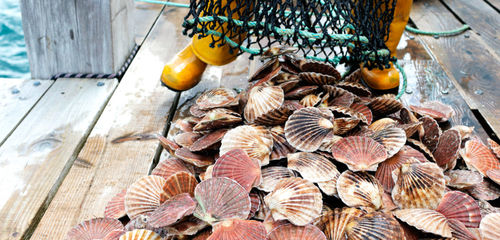“No Brainer” Fisheries Management
Micro-management of the Coromandel scallop fishery is safeguarding its long-term sustainability.

The fishery is being managed using a Catch Per Unit Effort (CPUE) system designed to efficiently monitor annual variations in abundance.
Coromandel Scallop Fishers Association (CSFA) chairman Peter Sopp said the approach had resulted in consecutive years where they didn’t reach the Total Allowable Commercial Catch, securing the fisheries long-term sustainability.
“Essentially we divided the fishery up into paddocks, just the same as a farm,” he said.
“By doing this it allows us to have a better understanding of how the fishery is working.”
“The CPUE management approach has kept our catch rates on an even keel and we are leaving smaller scallops in the water.”
The system had been such a success, it was a mystery why others did not take it on, Sopp said.
“To me, it’s a no-brainer. Using CPUE ensures we are protecting next year’s stock, along with the fishery for the seasons to come.”
Fisheries research and science company, Trident Systems, works with the CSFA to manage the approach.
Trident’s chief executive David Middleton said although CPUE is implemented on a voluntary basis, recent sustainability decisions have recognised that it is an important part of how the fishery is managed.
“Using fine spatial scale catch and effort data, scallop beds are closed if catch rates fall below a specified limit,” he said.
“In addition to limiting the overall catch, the strategy causes catches to be spread and avoids over-depletion of individual beds.”
Fisheries Inshore programme manager Oliver Wilson said the proactive efforts of CSFA to implement the voluntary CPUE system demonstrates the organisation’s values of responsible management.
“We anticipate this will be adequately recognised in the Ministry for Primary Industries’ updated plenary chapter describing existing management in the Coromandel scallop fishery.”
